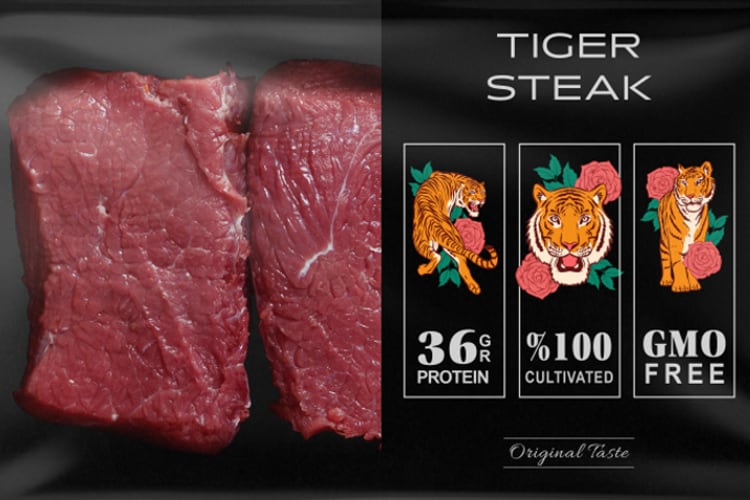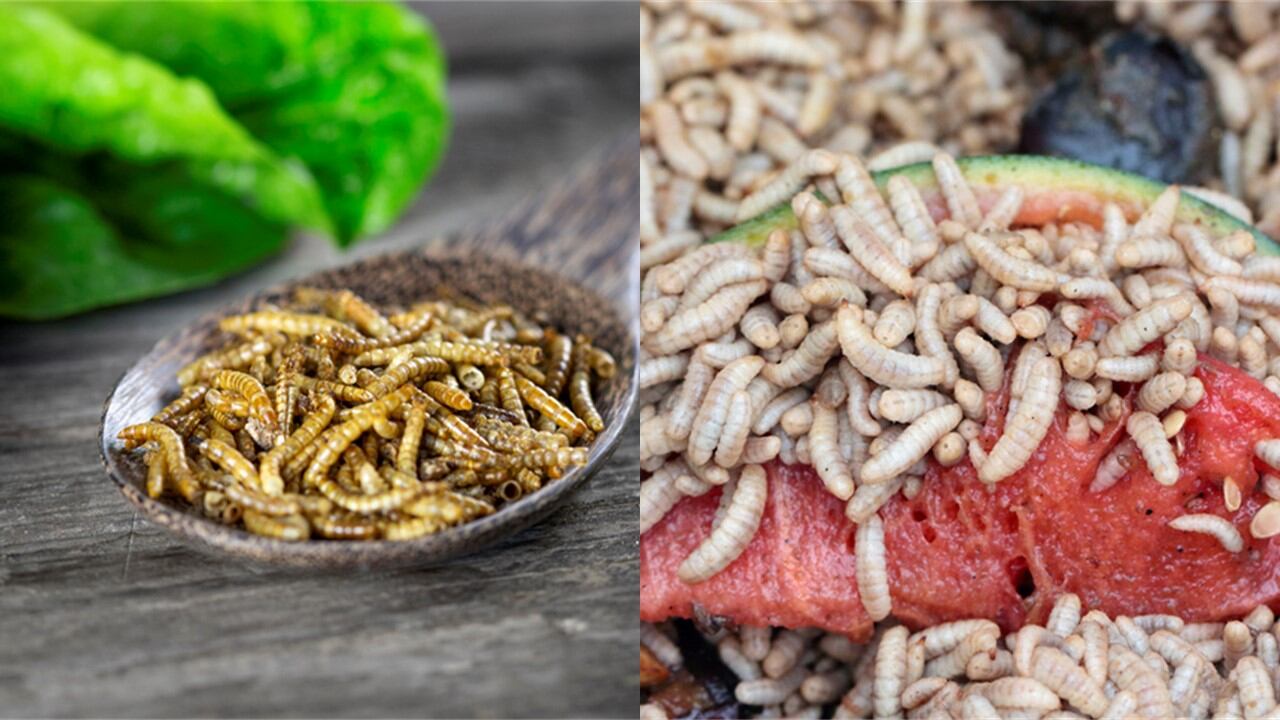How will the food sector provide up to ten billion people with enough protein in ways that are healthy, affordable and sustainable?
This has become a fundamental question for the food sector. Protein is essential for human health – but the way it is currently produced depletes natural resources. Righting this imbalance is critical to the mission of feed supplier Nutreco’s venture capital arm, which is investing in ‘breakthrough innovations’ that it hopes will not only fast-track growth but also support the transition to a more sustainable system of protein consumption.
Director of venturing, Joost Matthijssen, believes that the answers are within spitting distance. “We are very excited about how technology will revolutionise how food protein is produced, including making it more sustainable,” he told FoodNavigator.
Looking holistically at the protein landscape
Nutreco established its corporate investment arm, NuFrontiers, 4-5 years ago. It has made 18 investments in that time that address issues in animal protein production as well as supporting the development of alternative protein foods.
“Developing new protein sources are all exciting, they create a lot of buzz. But it is also very important to make existing sources of protein more sustainable and to up the performance, especially of the animal protein value chain. There are challenges there but technology can help address these,” Matthijssen observed.
Matthijssen said that ‘some years ago’ the protein space was divided into the diametrically opposed camps of proponents of animal and alternative proteins. This is not how Nutreco tries to evaluate the protein landscape.
“We try to see a bigger picture. The population is growing, demand for protein is growing, pressure on resources is growing, sustainability challenges are growing. We need to address those. For that we need every type of support from technology that we can get. That pertains to animals as well as alternative proteins. That's the lens we are applying.”
This approach does, however, still alienate some potential partners and means ‘some people would not be looking to partner with us based on our core business’ in the animal production chain. “We are fine with that, it takes two to tango, both parties need to be committed,” the investment specialist reflected.
Innovating for a sustainable future in animal proteins
Matthijssen believes that the animal protein supply chain is coming under increasing pressure to boost its sustainability credentials. The industry has witnessed rising scrutiny of the footprint of animal agriculture in the form of GHG emissions and other pollutants as well as concern over animal welfare in intensive production systems.
This trend is ‘disruptive’ and could have a ‘negative impact’ if producers fail to adopt new ways of working, he stressed. “Let’s make no mistake, it will impact the animal protein chain,” we were told. “The pressure is increasing.”
But where there are challenges, there are also opportunities. “It is a two-sided coin. With every impact there comes an opportunity as well. Technology plays into this in a very clear way.”
What technologies does Nutreco’s investment vehicle believe will re-shape the animal protein landscape? “Novel raw materials that have a better sustainability footprint and cause fewer emissions will have a key role to play. We produce nine million tonnes of feed on an annual basis. That means if the ingredients that we use are only slightly more sustainable, that drives a very big impact. The same for digital farming solutions. If you can give every animal precisely what it needs that means keeping it healthier, making it more efficient, reducing waste... That has a sizable sustainability impact as well.”
The definition of sustainability when looking at protein production should not only focus on the environmental aspect, Matthijssen continued. It also needs to take into account the impact on livelihoods and welfare.
“If you look across our portfolio and our investments so far, sustainability is a cornerstone on the environmental side but also aspects like social impact.”
Case in point is Nutreco’s recent investment in Indian dairy tech company Stellapps, which has developed technology solutions to enhance productivity, milk quality and enable traceability for smallholder farmers.
Alt protein: ‘We see huge potential in fermentation’
In more developed countries, Nutreco believes investment into and development of alternative protein sources is critical, in order to make the food and farming industry more sustainable.
The group recently led a funding round in ENOUGH, a European food tech start-up pioneering high scale sustainable protein production via fungal fermentation.
“ENOUGH exemplifies the potential of fermentation-based protein. We see huge potential there, especially from a scaleabilty perspective,” Matthijssen reflected.
Founded in 2015, Glasgow-based ENOUGH is currently building a ‘first of its kind’ mycoprotein factory in the Netherlands, which will have a 50,000-tonne capacity. The company expects to initially grow 10,000 tonnes per annum when the facility is operational – by the end of 2022 – and has targeted production of over a million tonnes cumulatively within ten years of its launch.
Matthijssen says this rapid scale-up is possible because ENOUGH leverages existing technologies and infrastructure. “It can be scaled much more rapidly and get to output faster. That's why we were so intrigued by EHOUGH,” he told us.
Nutreco is also ‘actively exploring’ the arena of precision fermentation, which it sees as a longer term play but one that is no less disruptive in its potential.
“We see lots of potential in the fermentation space for biomass fermentation as well as precision fermentation,” he explained. “The scale at which they will be leveraged will be different. If you take the example of ENOUGH, they produce an ingredient to make alternative meat, in those products the main ingredient will be their mycoprotein. So if you want to create a meaningful volume you have to have scale. In precision fermentation some of these companies are focused on functional ingredients, that are included at a much lower level. They will have an impact even if they are produced at lower scale.
“The pathway to scale will be different. the more innovative and disruptive the technology... the more challenging the pathway to scale will become.”
Cellular agriculture generates ‘buzz’ but the potential is real
Another area in the alt protein space very much ‘in the limelight’ is cellular agriculture. “It gets a lot of attention,” Matthijssen observed, adding that the feed supplier has investments in two companies at the forefront of development: Mosa Meat and BlueNalu.
“We made our first forays into this space in 2019. Cultured protein was our starting point. That's a space that we remain excited about. We have investments and partnerships Mosa Meat and BlueNalu. We see the promise and potential that cultured protein has.”
Nutreco’s involvement with the companies in which it invests isn’t just about return on investment. The company wants to act as a partner with these start-ups, taking an ‘active role’ in their development.
“It starts with curiosity and the intent to learn about new ways of doing things, especially technologies and capabilities that we don’t' have in house that we’d like to understand better. There is also the aspect about getting access to technology. We believe we can create value with that technology, bring it to market, take it to the next level. But it is not about control per se, it is about developing and accelerating. We are not just an investor taking a financial stake, we want to be an active partner.”
In cellular meat, Nutreco is optimistic that these partnerships can also lead to new opportunities for its core business. “Next to these protein companies, there is going to be enabling and supporting technology required. Part of which we are trying to develop ourselves. We would love to be an input supplier to this industry as soon as it is able to take off.”
What would this role look like? Nutreco could potentially play a part in addressing one of the big bottlenecks and cost challenges in the cultivated meat space: provision of a growth medium for the animal cells.
"For cultured protein scaling up is deeply challenged. That is a technical challenge but it is also a cost challenge. For this technology to become mainstream it needs to be cost effective. A big part of the cost of goods sold for cultured protein is the growth media. That's where we have an interest. If you look at our core business, we supply inputs to animal protein production and by extension that is also a role we are very interested in when we look at alternative protein and specifically cultured protein production.
“That is first and foremost a technological challenge, if you can get it to work you have to set up the supply chain at the right volume, price, quality, level of assurances and checks and balances. That is something we can see as a fairly logical and natural extension of our business model into this new value chain.”
Through its investment arm as well as in-house innovation efforts, Nutreco plans to play a significant role in supporting the transition towards more sustainable production models for proteins, from animal, to alternative and cellular. “Technology will make a big difference. We need to revolutionise the way food protein is produced. We need to make it more sustainable. Technology can help."




